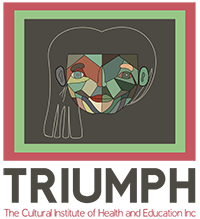Our services
The Cultural Institute of Health and Education (CIHE) is a nonprofit organization that started as an idea that was constructed by its founders; Amira Clemens, Terrie Johnson-Black and Denise Way. As practicing, nurses who also teach, we often discussed how to address significant issues we witnessed in practice and in instruction. The trends were that we did not often see an equal number of people of color in professional roles in healthcare or as students in health career programs in universities.
Patient Care Tech Program
PCTs are assistants who work with patients in a variety of settings. They assist doctors, nurses and other health professionals with the care of patients. Most of the PCT duties include trained skills such as obtaining vital signs, EKGs, drawing labs, wound care, giving injections… and many more skilled duties in nearly all health care settings. PCT training is a combination of nursing assistant and medical assistant responsibilities. This combination increases their marketability allowing them to work in a multitude of settings.
EKG Technician Program
An EKG technician is a healthcare professional trained to perform electrocardiogram (EKG) testing on patients. EKGs are medical devices created to measure the function of the heart. The technicians learn how to use these machines and assess the status of the heart, heart rhythms, and the health of the heart. Their responsibilities also include:
- Documenting medical histories of patients
- Preparing patients for procedures
- Ensuring the quality of the EKG data
- Communicating with doctors and other health professionals
- Maintaining EKG equipment
Phlebotomy Program
A phlebotomist is a healthcare professional that is trained to draw blood for clinical and medical testing. They can also assist in giving blood transfusions, blood donations, medical research, and dialysis. They work in a multitude of healthcare settings including in-patient, out-patient, and research settings. Phlebotomists are essential health care professionals. A phlebotomist’s responsibilities may include, but are not limited to the following:
- Performing venipunctures
- Performing capillary draws
- Transporting specimens to the laboratory
- Professionally interacting with patients
- Treating patients with empathy and compassion
- Respecting patient’s rights
- Recognizing the need for continuing education and staying current in health care mandates
